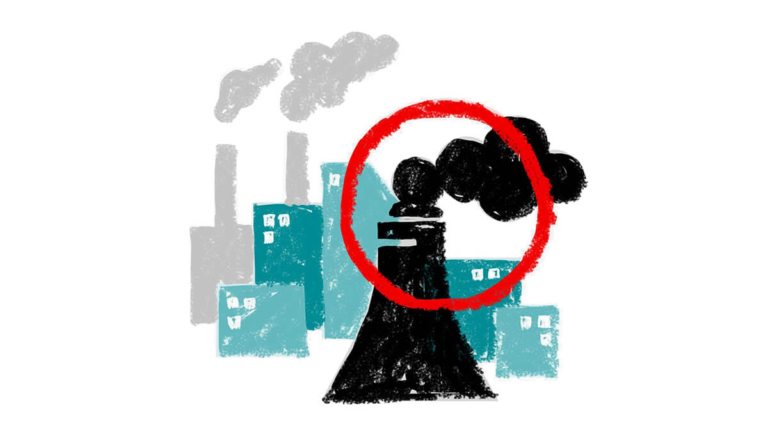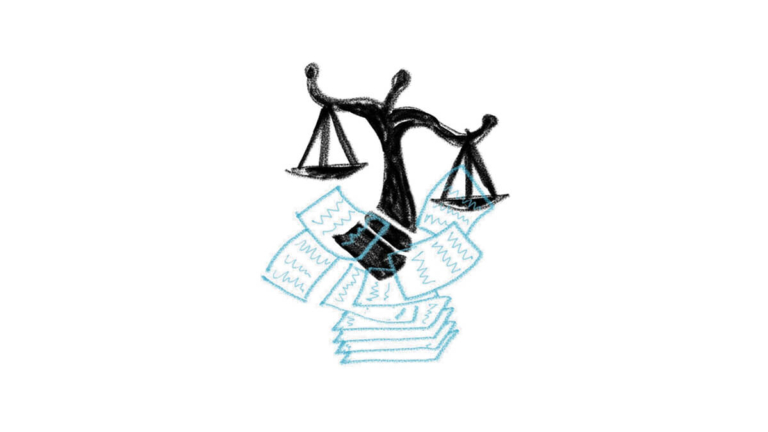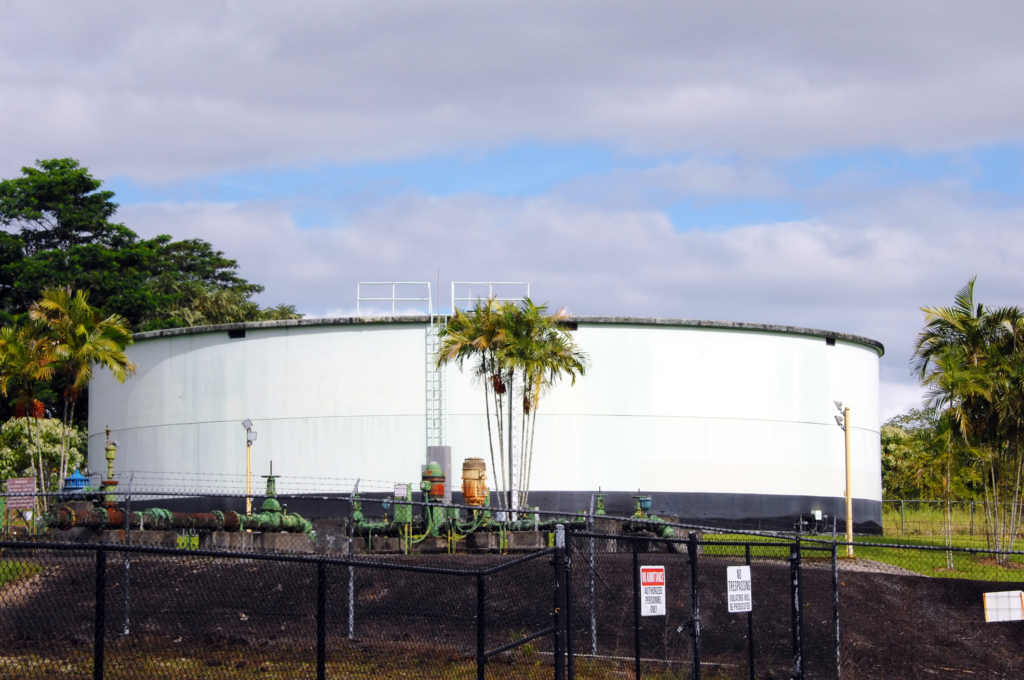Casebook Info
In a bold, unanimous decision, Hawai’i’s highest court issued a landmark decision rejecting a power purchase agreement between the Hawai’i Electric Light Company and an energy company, Hu Honua Bio Energy LLC.
The majority opinion emphasized the constitutional duty on the state of Hawaii to protect the right to a clean and healthy environment. The concurring opinion of Justice Wilson went even further, finding that the right to a clean and healthy environment is subsumed in the due process right to “life, liberty, and property” as well as in “the public trust doctrine,” which requires the conservation and protection of natural resources “for the benefit of present and future generations.”
- Year Filed 2017
- Year of Most Recent Ruling 2023
- Year of Final Ruling 2023
- Jurisdiction Hawaii
- Court Name Supreme Court of Hawaii
- Primary Focus Mitigation & state constitutional duties on climate change
- Ruling On Merits
- Plaintiff(s) Hawai’i Electric Light Company, Inc. & Hu Honua Bio Energy LLC
- Respondent(s) State of Hawaii
- Outcome Ruling for respondent
- Organizational leader of the litigation N/A
- Link to the decision/ruling
Background
This case concerned the Public Utilities Commission’s denial of a proposed Power Purchase Agreement (PPA) between an energy company, Hu Honua, and the Hawai’I Electric Light Company, Inc.
The PPA proposed the development of a biomass power plant, where Hu Honua would burn biomass – mainly locally-grown eucalyptus trees – to create energy and the Hawai’i Electric Light Company would purchase that energy. It was estimated that this power plant would emit approximately 8,000,000 metric tons of CO2 over the course of 30 years.
The Commission was tasked with deciding whether to allow the PPA to proceed, based on the grounds set out in an applicable state statute. In deciding, the Commission undertook a “public interest-minded balancing” test, considering factors including greenhouse gas emissions. The Commission issued a series of decisions starting in 2017, ultimately rejecting the PPA following a contested hearing in March 2022.
Hu Honua appealed the Commission’s decision to the Hawai’i Supreme Court.
Supreme Court’s Decision – the Majority Opinion
The Supreme Court, in a unanimous decision, roundly rejected Hu Honua’s arguments against the Commission’s decision.
First, the majority opinion addressed Hu Honua’s arguments which sought to limit the matters the Commission could take into account under both the remand granted by the Supreme Court and the applicable state statute. The Court rejected Hu Honua’s argument that the Commission was only able to consider the “one discrete issue” of greenhouse gas emissions under its remand. It also rejected the argument that the Commission could only consider greenhouse gas emissions resulting from burning fossil fuels, as opposed to emissions resulting from burning biomass.
Second, the majority opinion rejected Hu Honua’s contention that the Commission violated its due process rights. Hu Honua argued the Commission wrongly found its own facts and tried to become its own “expert,” applied an overly high evidentiary standard, and improperly created a new carbon neutrality requirement.
On the latter point, the majority held that the Commission did not adopt a new ‘carbon neutrality’ standard. But even if it had, it expressed doubt that the Commission would not have been able to.
Article XI, Section 9 of the Hawai’i Constitution (1978) states: “each person has the right to a clean and healthful environment.” The majority found that this right encompassed the right to a “life sustaining climate system” and that this right was “not just affirmative; it is constantly evolving” (p. 18).
The majority cited the fact that the people of Hawai’i have declared a climate emergency and acknowledged the significant threats posed by climate change to the “cultural and economic survival” of Hawai’i, noting:
Hawaiʻi faces immediate threats to our cultural and economic survival: sea level rise, eroding the coast and flooding the land; ocean warming and acidification, bleaching coral reefs and devastating marine life; more frequent and more extreme droughts and storms…. For the human race as a whole, the threat is no less existential.
With each year, the impacts of climate change amplify and the chances to mitigate dwindle . . . A stepwise approach is no longer an option.
p. 19
As a result, the majority held that the Commission was under a constitutional duty to evaluate the proposed PPA in light of the increasingly pressing risks posed by climate change.
“[Y]esterday’s good enough has become today’s unacceptable.”
p. 19
Concurring Opinion by Justice Wilson
Justice Wilson issued a separate concurring opinion, which was even stronger in its discussion of the Commission’s constitutional obligations.
Justice Wilson agreed with the majority that the Commission’s denial of the Amended PPA was consistent with its duty under Art. XI, sec. 9 of the Hawai’i Constitution to protect the right of Hawai’i’s people to a clean and healthy environment, which encompasses the right to a life-sustaining climate system.
However, the justice went further and emphasized that the right to a life-sustaining climate system is also included in the due process right to “life, liberty, [and] property” enumerated under Art. 1 of the Constitution and the mandate of s 1 that the State of Hawai’i “conserve and protect Hawai’i’s . . . natural resources . . . for the benefit of present and future generations.”
A “Sui Generis Emergency”
Justice Wilson began his analysis by holding that climate change is a “sui generis emergency: it is the single greatest threat to the natural environment and human societies that ‘the world has ever experienced’” (p. 6). The opinion noted that it was within “the context of the dire and undisputed fact that present levels of global emissions will ensure irreversible damage to our climate system” that Hu Honua brought its appeal (p. 6).
Constitutional Obligations to Limit Greenhouse Gas Emissions
Justice Wilson held that the state of Hawai’i has a constitutional duty to limit greenhouse gas emissions. This duty was based on the following provisions of the Hawai’i Constitution (1978):
- The right to a clean and healthy environment (Section 9)
- The due process clause (Art. 1, sec. 5), which guarantees that the state will not deprive a person of “life, liberty or property without due process of law.”
Justice Wilson interpreted the due process liberally, explicitly rejecting originalist notions that the “framers believed their subjective intentions were to control the construction of the Constitution in centuries to come” (p. 25).
As a life-sustaining and stable climate is “the foundation upon which society and civilization exist,” Justice Wilson held that preventing greenhouse gas emissions was fundamental to the continuation of the rule of law – a new concept which Justice Wilson coined the “climate rule of law” (p. 26) (addressed in more detail below). Given the threats presented by climate change, the justice held that the right to a stable environment was fundamental to Hawai’i’s other constitutional guarantees (p. 29).
On this basis, Justice Wilson held that the right to a life-sustaining climate system is “deserving of fundamental status as essential to our scheme of ordered liberty because it is preservative of all rights” (p. 27).
- The public trust doctrine (Art. XI, sec. 1), which states that “for the benefit of present and future generations, the State and its political subdivisions shall conserve and protect Hawai’i’s natural beauty and all natural resources, including land, water, air, minerals and energy sources.”
Prior Hawaiian decisions have declared that the public trust doctrine is a fundamental principle of constitutional law in Hawai’i (p.30, citing Re Waiahole Dith Combined Contested Cast Hr’g (2000)). Justice Wilson takes the doctrine further, finding that the climate system is a natural resource, held by the state for the benefit of present and future generations (p.31). This means the state has a “public trust duty” to reduce the level of atmospheric CO2 to below 350 parts per million by 2100 (which is even more ambitious than the Paris Agreement target) (p. 33).
Need to Adopt Science-Based Standards
Justice Wilson noted the Paris Agreement’s goal to limit the average global temperature increase to 1.5°C above pre-industrial levels and candidly acknowledged that the world was not on target to meet that goal. However, based on “current scientific consensus, as opposed to political consensus,” the justice expressed the view that the target for emissions reductions should be based on the “level of atmospheric CO2 that ensures a life-sustaining climate system” – which, drawing from the work of climate expert Dr. James Hansen and Andrea Rodgers, he considered should be 350ppm (pp. 9-10).
He expressed concern at using the 1.5°C threshold as a judicial standard for protecting constitutional rights, as it might “permit governments to perpetuate policies that, in fact, violate fundamental rights . . . that is, ‘once a constitutional standard is embedded in law, history shows that policies that flow from that constitutional standard will inevitably allow full maximization of pollution levels that lead to the brink of that standard” (pp. 9-10).
Criticism of the United States Federal Courts’ Climate Jurisprudence
Justice Wilson derided the approach taken by United States federal courts on decisions affecting climate change, noting that “the federal courts of the United States have thus far abdicated responsibility to apply the rule of law to claims that allege knowing contamination of the atmosphere with deleterious levels of greenhouse gas emissions” (at pp. 16-17). The justice explicitly disagreed with the Ninth Circuit’s reversal of the District Court of Oregon’s decision in Juliana v. United States and the majority in the United States Supreme Court’s decision in West Virginia v. EPA. In light of the federal judiciaries’ “stark failure” to protect the rights of present and future generations, Justice Wilson held that “implementation of the climate rule of law” was relegated to state judiciaries (p. 22). And “unlike the Juliana majority, the Hawai’i State Supreme Court does not choose to ‘throw up [our] hands’” (p. 22).
Justice Wilson’s Conclusion on the Facts of the Case
Accordingly, Justice Wilson held that the Commission’s consideration of the project’s greenhouse gas emissions and denial of the PPA aligned with the urgent need for state action to reduce emissions and gave due protection to the people of Hawai’i’s right to a life-sustaining climate. He went one step further, finding that the Commission had to make the reduction of greenhouse gas emissions “the primary consideration in deciding whether to approve or deny a PPA,” consistent with its obligation under the public trust doctrine (p. 35).
- 8,000,000 metric tons The projected CO2 emissions from the proposed power plant
- 350 ppm The CO2 concentration, in parts per million, which Justice Wilson held was “essential” to prevent the worst impacts of climate change
- 419 ppm Atmospheric CO2 concentrations measured at Mau Loa as of May 2021
- 20% The proportion of the world’s historic and cumulative greenhouse gas emissions for which the United States is responsible (figure cited by Justice Wilson p. 16)
Strategies
Challenging a fossil fuel project

The case concerned a proposed energy project. It was not a fossil fuel project, but a biomass energy project. As the majority opinion records in the very first sentence of its opinion: “Over ten years ago, energy company Hu Honua had a brainwave: it could produce renewable energy by burning trees.” Although the project was supposedly for “renewable” energy, the projected emissions were very significant. This highlights the importance of scrutinizing non-fossil fuel energy projects like biomass projects, as they can also produce high levels of emissions and environmental harm.
Centering rights

The majority opinion centered the Hawaiian constitutional right to a clean and healthy environment in its decision. Justice Wilson concurred with the majority’s reasoning on this point but went further. The justice:
- Explicitly recognized the connection between human rights and climate change, noting:
“Climate change is a human rights issue at its core; not only does it inordinately impact young people and future generations, but it is also a profound environmental injustice disproportionately impacting native peoples” (p. 15)
- Found that Hawai’i’s constitutional due process clause (Art. 1, sec. 5), which guarantees that the state will not deprive a person of “life, liberty or property without due process of the law,” requires the state of Hawaiʻi to act to ensure that there is a life-sustaining climate system capable of supporting the health and survival of Hawai‘i’s people and the rule of law itself (p. 28). The due process clause includes the right to a life-sustaining climate system (p. 3). This right is implicit in the concept of ordered liberty, underlies all other constitutional guarantees, and is fundamental to the rule of law (pp. 26-8)
- Emphasized the need for constitutional rights to be interpreted in light of new and changing circumstances, such as climate change. Justice Wilson cited the District Court of Oregon’s decision in Juliana, which noted that the “genius of the [c]onstitution is that its text allows future generations [to] protect….the right of all persons to enjoy liberty as we learn its meaning” (p. 25).
Emphasizing the urgency of taking climate action now, given the compounding and permanent effects of climate change as time progresses

Both the majority and concurring opinions relied on scientific evidence to show the importance of taking climate action now to avoid the worst possible effects of climate change. The majority cites the 2022 United Nations Environmental Programme’s Emissions Gap Report in support of its point that “[f]or the human race as a whole, the threat is no less existential[]” and that “[w]ith each year, the impacts of climate change amplify and the chances to mitigate dwindle” (p. 19). As such, “[a] stepwise approach is no longer an option” (p. 19).
Justice Wilson’s concurring opinion cites a wide range of scientific and academic sources to show the dire effects of a 1.5°C to 2°C increase in warming on humans and the environment, the risk of climate tipping points, and the specific impacts of climate change on Hawai’i (pp. 10-15). Based on this scientific context, Justice Wilson emphasizes the need for urgent state action (pp. 16-23).
“Given the current level of atmospheric carbon concentrations, humanity faces an imminent global emergency. The decade of the 2020s is pivotal… The [Commission] must act urgently to reduce emissions within this decade in order to succeed in leaving future generations a habitable planet” (Concurrence, p. 11).
Take-aways
This is a rare example of a United States court taking a bold stance on a state’s constitutional obligations on climate change. This decision is in stark contrast to decisions at the federal level in the United States, such as the Supreme Court’s decision in West Virginia v. EPA (2022). It is more in line with progressive overseas authorities (such as Urgenda Foundation v. Netherlands and Leghari v. Pakistan, which the decision cites at p. 16) than decisions from the United States. It potentially could be used as a precedent to help spur a more progressive, rights-based turn in climate change litigation in the United States, particularly at the state-level.
